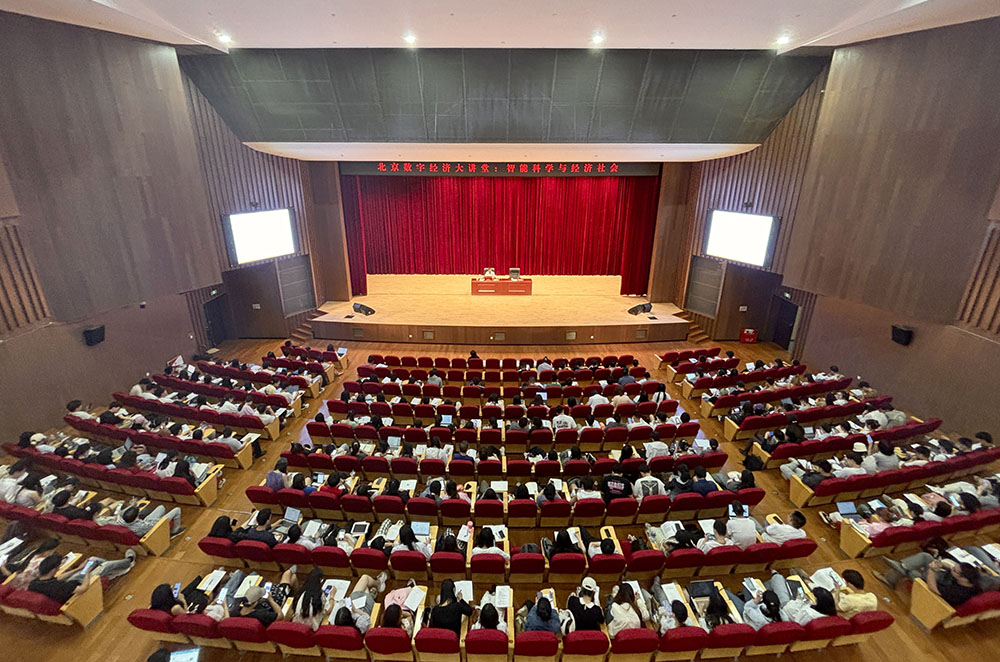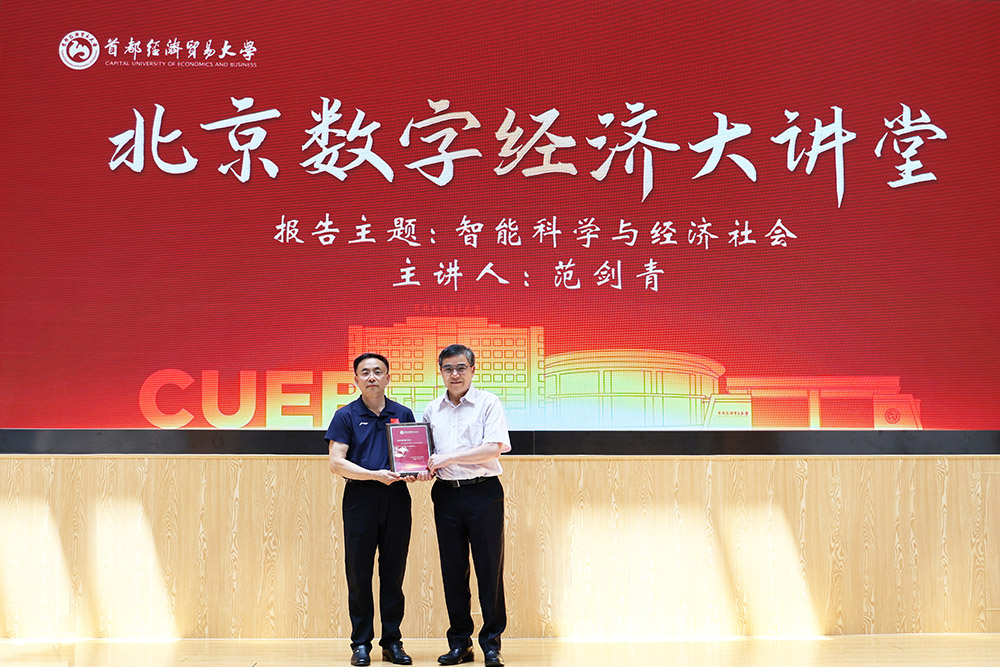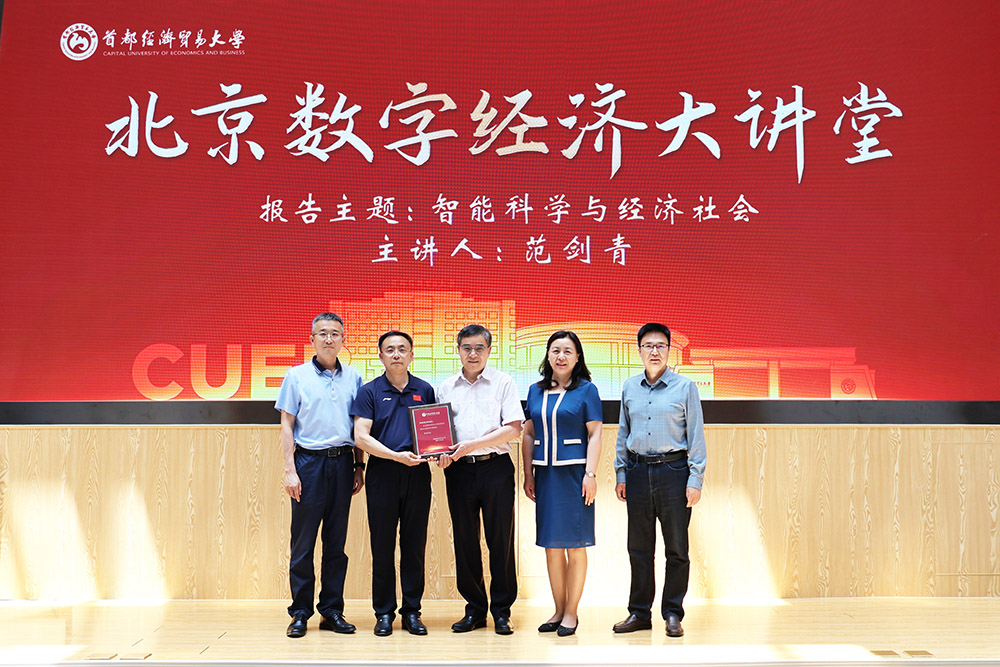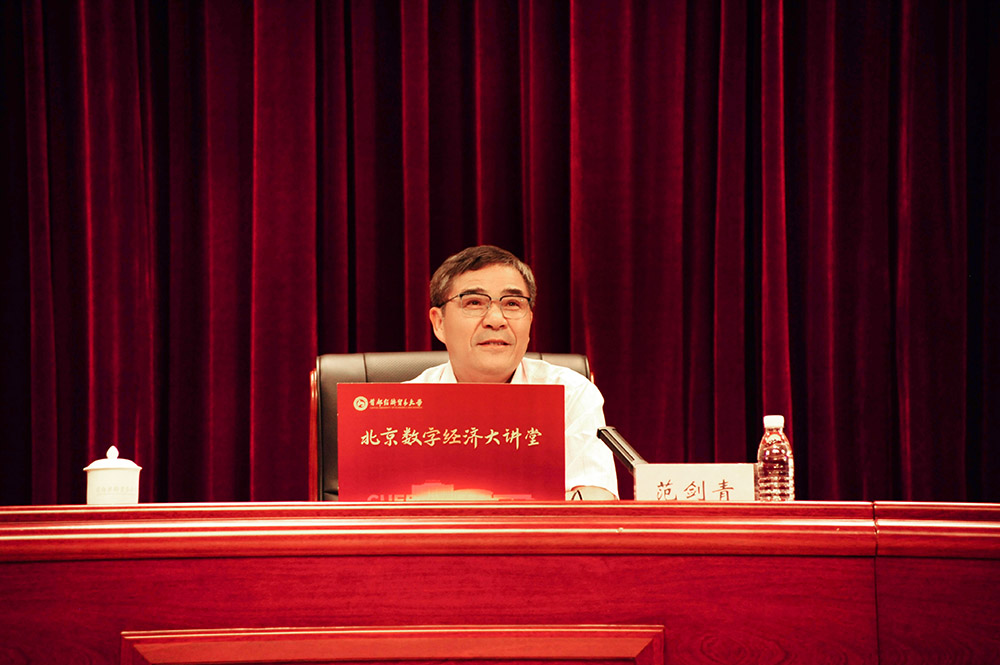Professor Fan Jianqing Visits CUEB

On the morning of June 6, Fan Jianqing, a renowned international statistician and Professor of Princeton University, delivered a keynote report titled “Intelligent Science and Economic Society” at the Beijing Digital Economy Seminar. The seminar took place in the Lecture Hall of the Boxue Building. Present at the seminar were Xu Fang, Deputy Party Secretary, and Yin Zhichao and Li Kunpeng, members of the Standing Committee of CUEB Party Committee and Vice Presidents. The seminar was co-hosted by Yin and Li.


Yin Zhichao extended a warm welcome to Professor Fan, introducing his personal background and academic achievements to the faculty and students. Yin highlighted Professor Fan’s international prestige and influence in statistics, noting his remarkable work in nonparametric modeling, high-dimensional statistics, and machine learning. As a distinguished professor at CUEB, Professor Fan has made significant contributions to the development of disciplines such as statistics, finance, and quantitative economics.Professor Fan began with the fundamental concepts of big data and artificial intelligence, illustrating how these technologies permeate everyday life, research, and decision-making. Besides, he explained how technological innovations across various industries have generated massive amounts of data, creating a strong demand for big data processing and analysis, which in turn drives the development of both fields. Therefore, it is important to focus on how intelligent science can change the paradigms of economic research. Drawing on his extensive research, Professor Fan vividly explained how artificial intelligence can be deeply integrated with socio-economic studies, the methodologies involved, the required technologies, and the key challenges and difficulties.

During the Q&A session, Professor Fan also displayed his humor and patience, addressing questions from the faculty and students regarding AI technologies impact on high-dimensional data and text analysis, among other topics. His detailed explanations provided profound insights to the attendees.Li Kunpeng expressed sincere gratitude to Professor Fan Jianqing, highlighting his distinguished reputation in international statistics and his role as a strategic scientist. Li noted the value of face-to-face interaction with Professor Fan and presented some expectations to the faculty and students. First, he encouraged them to establish a solid foundation in scientific research to prepare a strong knowledge base for problem-solving. Second, he urged them to enhance the ability to apply scientific knowledge to solve practical issues and focus their research on the major strategic demands of the nation and the development of the capital in the new era, thereby contributing to economic and social progress.

Introduction
Professor Fan Jianqing is an internationally renowned statistician, Professor of Statistics, and Operations Research and Financial Engineering at the Princeton University, Frederick L. Moore’18 Professor of Finance. He is a co-editor of the Journal of American Statistical Association, and Associate Editor of Management Science. He is currently a Fellow of the International Statistical Institute, the Institute of Mathematical Statistics, the American Statistical Association, the American Association for the Advancement of Science, and the Society for Financial Econometrics. He has served as the President of the Institute of Mathematical Statistics and the International Chinese Statistical Association, and as the editor-in-chief for multiple leading international academic journals. He has received numerous awards, including the 2000 COPSS Presidents’ Award, the Humboldt Research Awars, the Morningside Gold Medal for Applied Mathematics of International Congress for Chinese Mathematicians, Pao-Lu Hsu Prize of International Chinese Statistical Association, the Guy Medal in Silver, Royal Statistical Society, and the Noether Senior Scholar Awards. Professor Fan has made significant contributions to the fields of parametric modeling, high-dimensional statistics, machine learning, network analysis, deep learning, data science, financial economics, and bioinformatics.
